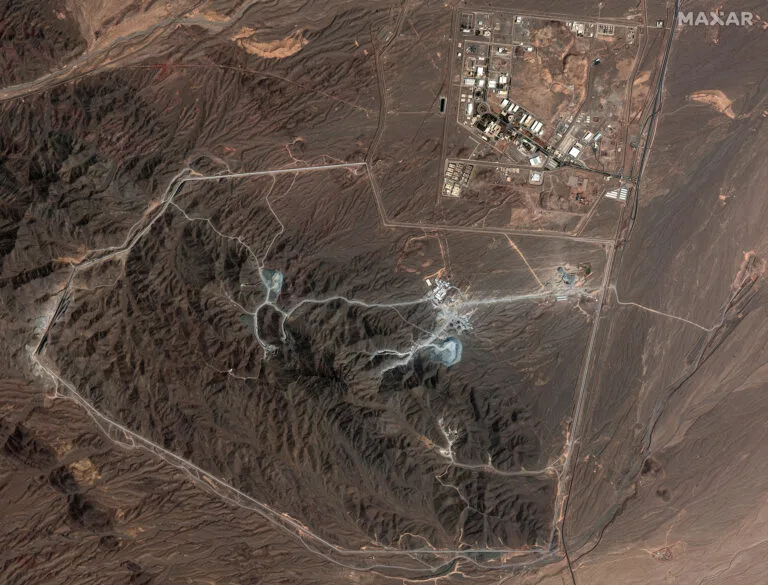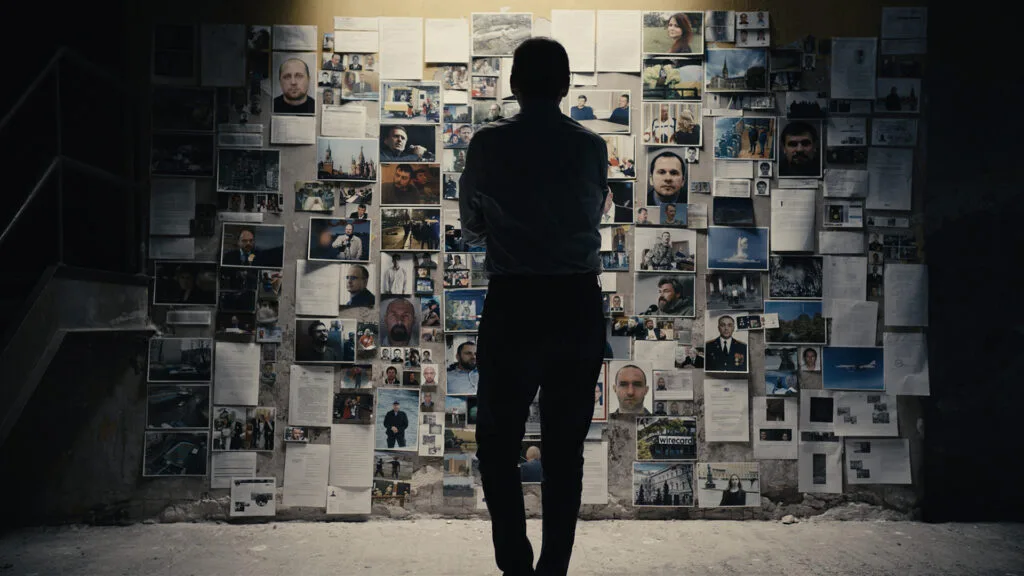Exclusive: Iran Won’t Allow Nuclear Inspections if Sanctions Are Reimposed, Says Iran’s Chief Nuclear Negotiator
In an exclusive interview with FRONTLINE, Iran’s chief nuclear negotiator said the country will end its participation in international weapons inspections if sanctions are reimposed.
September 26, 2025
Share
Iran will end its participation in international weapons inspections if United Nations sanctions are reimposed, said the man now in charge of Iran’s nuclear negotiations. Ali Larijani, secretary of the Supreme National Security Council told FRONTLINE, “If ‘snapback’ mechanisms are enforced, we will end our participation with the IAEA.”
Whether inspectors from the International Atomic Energy Agency will be able to access certain nuclear sites has been in limbo since the U.S.-Israeli bombing campaign in June. And a 30-day countdown for reimposing sanctions on the country that had been frozen since 2015 is set to expire this weekend.
In a wide-ranging conversation with FRONTLINE in Tehran, Larijani said, “We have pursued every option and mechanism available for solving this conflict in a peaceful way,” and he warned U.S. President Donald Trump against new attacks, saying Iran will never surrender. It was Larijani’s first interview with foreign media since he was appointed to his new role by Supreme Leader Ayatollah Ali Khamenei following the 12-day war with the U.S. and Israel.
This story is part of a collaboration between The Washington Post and FRONTLINE (PBS) that includes an upcoming documentary with Evident Media and Bellingcat.
The September 22 interview, some of which is excerpted in the videos in this story, was part of a recent reporting trip in which a team from FRONTLINE was given permission to travel to sites around Iran that had been targeted during the war. FRONTLINE was not allowed to visit any of the nuclear facilities hit by the American strikes but was able to film at locations where Iranian scientists were assassinated, speak to witnesses and family members of those killed, and visit non-nuclear energy infrastructure sites that had been bombed.
In the interview, Larijani said he did not have “any specific information to share” about the extent of the damage to Iran’s nuclear sites by the American bombing or how much the strikes had set back Iran’s nuclear program. But he said, “… in my opinion, Iran’s nuclear program can never be destroyed. Because once you have discovered a technology, they can’t take the discovery away. It’s as if you are the inventor of some machine, and the machine is stolen from you. You can still make it again.”
New reporting from The Washington Post has detected activity at an underground site south of Natanz, known as Pickaxe Mountain. Asked to comment about whether the U.S.-Israeli strikes had spurred the activity and if there was anything he could say about the site, Larijani replied: “No, nothing. We haven’t abandoned any of those locations. But in the future they could possibly continue to run as they currently do or be shut down.”

FRONTLINE and The Washington Post are collaborating on an upcoming documentary, along with Evident Media and Bellingcat.
Larijani told FRONTLINE that while Iran had no intention of pursuing a nuclear weapon — either now or in the future — the U.S. and Israeli strikes over the summer had made negotiations a “farce.”
When asked what he wanted Americans to understand about Iran’s nuclear program, he said, “That they understand we are deserving of the same human rights which they proclaim for themselves. That they should act with justice and morals. Their behaviors will cause the world to descend into chaos. And that affects them negatively as well.” He added, “The American people did not wish to elect people who will send their soldiers to the grave. They should act correctly, and desire for others what they want for themselves.”
Related Documentaries
Latest Documentaries
Related Stories
Related Stories
Explore
Policies
Teacher Center
Funding for FRONTLINE is provided through the support of PBS viewers and by the Corporation for Public Broadcasting, with major support from Ford Foundation. Additional funding is provided the Abrams Foundation, Park Foundation, John D. and Catherine T. MacArthur Foundation, Heising-Simons Foundation, and the FRONTLINE Trust, with major support from Jon and Jo Ann Hagler on behalf of the Jon L. Hagler Foundation, and additional support from Koo and Patricia Yuen. FRONTLINE is a registered trademark of WGBH Educational Foundation. Web Site Copyright ©1995-2025 WGBH Educational Foundation. PBS is a 501(c)(3) not-for-profit organization.























